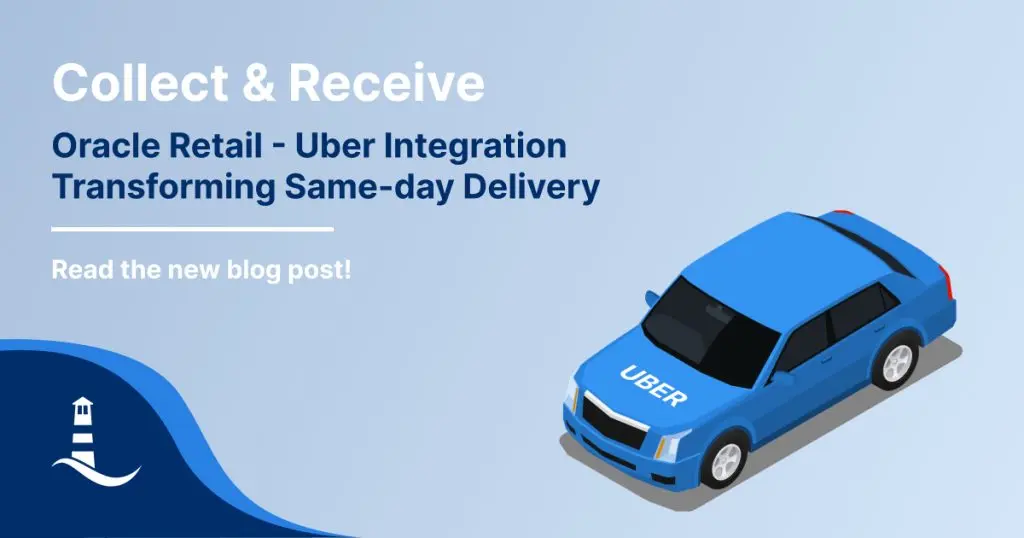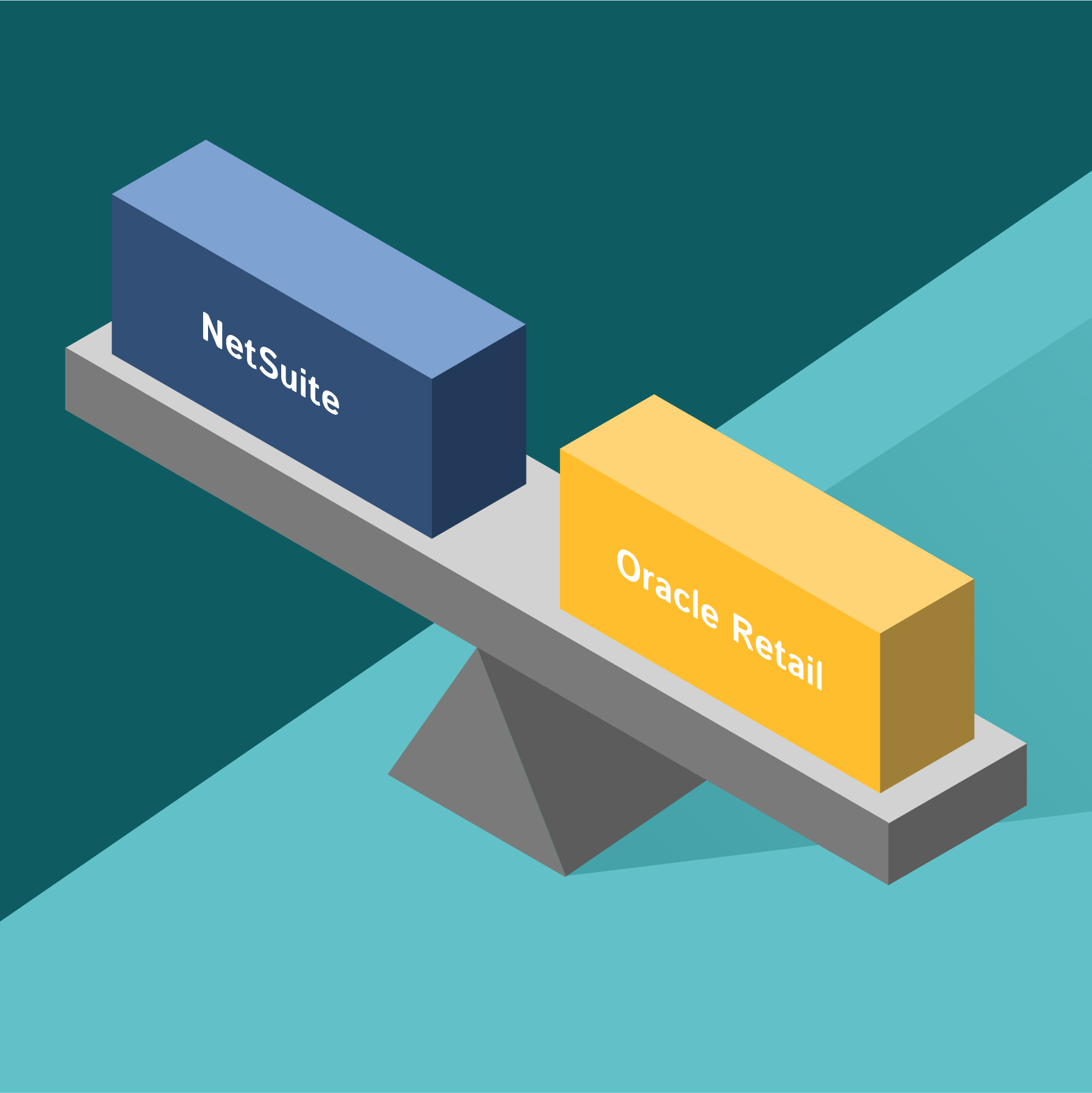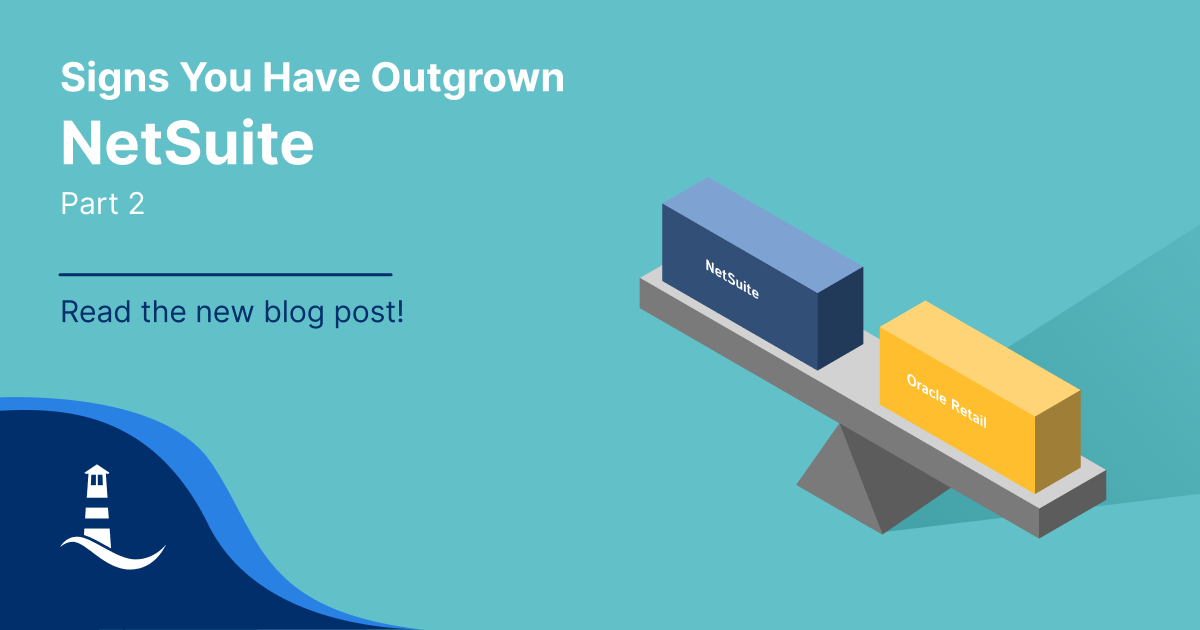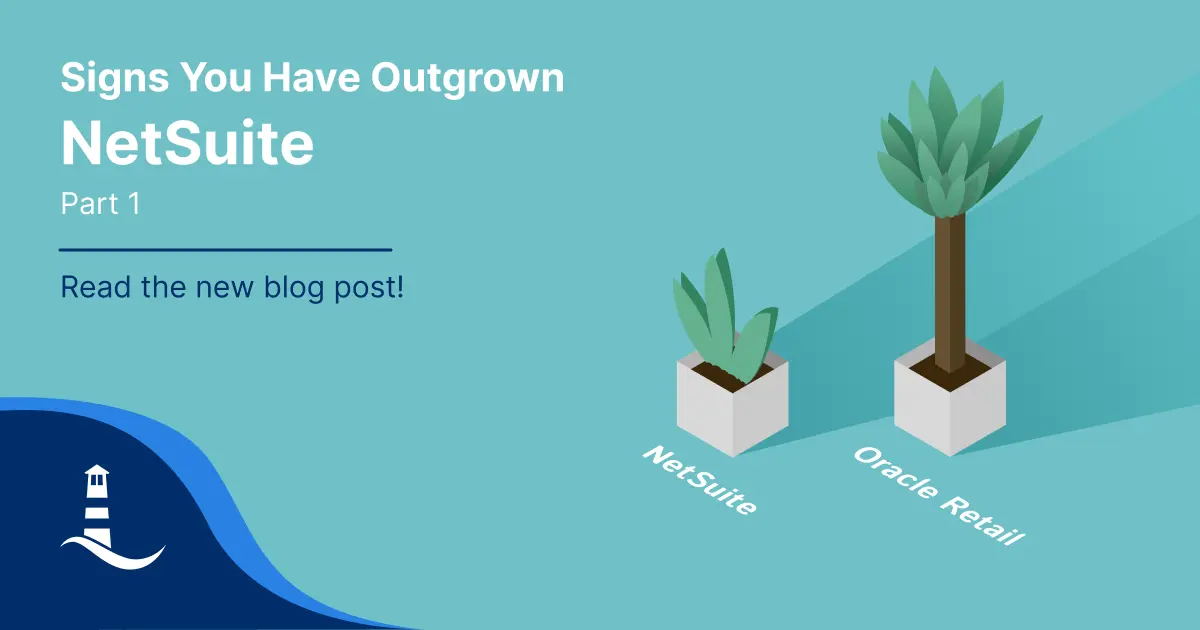Summary
Are you a retailer running your core business operations for merchandising on NetSuite? You plan to grow and you need to know when to switch from NetSuite to a more robust and scalable solution like Oracle Retail? Or you run NetSuite and you are experiencing performance problems, wondering if you are doing something wrong or have outgrown the system? This article is for you, explaining when to consider switching to a more scalable retail solution than NetSuite.
Background
Key differences between Oracle Retail and NetSuite:
Oracle Retail:
- Focus: Oracle Retail is primarily geared towards the needs of the retail industry. It offers a suite of solutions designed to address various aspects of retail operations, such as inventory management, merchandising, supply chain optimization, pricing, promotion management, and customer engagement.
- Industry-Specific: Oracle Retail solutions are tailored to the unique challenges faced by retailers, including those in fashion, grocery, electronics, and other retail segments. These solutions help retailers manage their operations efficiently, optimize inventory levels, enhance customer experiences, and make data-driven decisions.
- Functionality: Oracle Retail provides tools to manage every stage of the retail lifecycle, from planning and procurement to point of sale and customer loyalty. It aims to improve the entire retail value chain, from suppliers to end customers.
Oracle NetSuite:
- Focus: Oracle NetSuite, on the other hand, offers a broader suite of cloud-based enterprise resource planning (ERP) and customer relationship management (CRM) solutions. It is designed to cater to businesses across various industries, including manufacturing, wholesale distribution, e-commerce, services, and more.
- Cloud-Based: Oracle NetSuite is a cloud-based platform, which means that it’s accessible online and doesn’t require on-premises installations. This provides businesses with flexibility and scalability, making it suitable for organizations of different sizes.
- Comprehensive: NetSuite provides tools for managing various aspects of a business, including financial management, procurement, inventory management, order management, e-commerce, human resources, and customer relationship management.
Challenges
If you plan to scale your retail business beyond its current size and you are running on NetSuite, your current solution may not be suitable in supporting your business growth.
Moving from Oracle NetSuite to Oracle Retail is a significant decision that a growing retailer would make based on specific business needs and goals. Here are some reasons a retailer might consider transitioning from NetSuite to Oracle Retail:
- Industry-Specific Solutions: Oracle Retail offers specialized solutions tailored to the retail industry’s unique challenges. If a retailer’s growth and complexity demand more sophisticated and industry-specific functionalities for merchandising, inventory management, supply chain optimization, and customer engagement, Oracle Retail’s targeted features could be more suitable.
- Advanced Merchandising and Planning: Oracle Retail provides advanced merchandising and planning tools that enable retailers to forecast demand, optimize inventory levels, manage assortments effectively, and implement pricing and promotions strategies that align with their growth strategiesgoals.
- Scalability: As retailers grow, their operational needs become more complex. Oracle Retail solutions are designed to handle the scale and intricacies of larger retail operations, helping retailers manage increased transaction volumes, expanded store networks, and more extensive product assortments.
- Enhanced Customer Experience: Oracle Retail solutions focus on enhancing customer experience through personalized offerings, loyalty programs, and improved omni channel capabilities. If a growing retailer is placing a greater emphasis on delivering exceptional customer experiences, Oracle Retail’s tools can help achieve these goals.
- Global Expansion: If a retailer is planning to expand its operations internationally, Oracle Retail’s global capabilities and localization features can facilitate smooth expansion into new markets with varying regulations, currencies, and business practices.
- Unified Platform: Oracle Retail provides a unified platform that integrates various aspects of retail operations, from supply chain to point of sale. This integration can lead to better data visibility, improved decision-making, and streamlined processes compared to disparate systems.
- Advanced Analytics and Insights: Oracle Retail offers robust analytics and reporting capabilities that allow retailers to gain deeper insights into their operations, customer behavior, and market trends. This data-driven approach can drive smarter business decisions and strategies.
- Ecosystem and Partnerships: Oracle Retail has established partnerships and integrations with a range of technology providers and service partners within the retail industry. This can provide retailers with access to a broader ecosystem of solutions and expertise.
- Regulatory Compliance: In some cases, retailers operating in heavily regulated industries might find that Oracle Retail offers specific compliance features that align with their needs more effectively than a more general ERP like NetSuite.
- Long-Term Strategy Alignment: If a retailer’s long-term growth strategy involves a strong focus on retail-specific operations, innovations, and technologies, transitioning to Oracle Retail can align more closely with these objectives.







